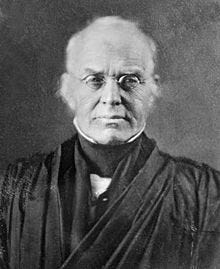#25: CIVICS 101: The Legislative Branch
Q&A #25: Are Members of Congress, to some extent, privileged from arrest?
Our American Government
Our American Government is a small book published by the House of Representatives for citizens and those who seek a greater understanding of the American interpretation of democracy. It follows a question-and-answer format and covers a broad range of topics dealing with the three branches of our Government, the electoral process, and the role of political parties.
The Savvy Citizen is reproducing the 169 questions-and-answers through a series of posts called Civics 101. Each post will contain the Q&A as well as some additional commentary to add historical context, fun facts, or anything we believe will add to our collective understanding of these topics.
Think of it as your adult Civics class, but without the test!
Let’s keep at it.
SECTION: The Legislative Branch: The Congress
Members, Offices, and Staff
Q&A #25: Are Members of Congress, to some extent, privileged from arrest?
Article 1, Section 6 of the Constitution states that Senators and Representatives “shall in all Cases, except Treason, Felony, and Breach of the Peace, be privileged from Arrest during their Attendance at the Session of their respective Houses, and in going to and returning from the same.” The phrase “Treason, Felony, and Breach of the Peace” has been construed to mean all indictable crimes, and the Supreme Court has held that the privilege against arrest does not apply in any criminal cases.

My Thoughts
In writing this section of the Constitution, the Framers picked up where the Articles of Confederation left off, which followed English parliamentary and colonial practices. In his Commentaries on the Constitution,1 Justice Joseph Story explained that privileging members of Congress from arrest reflected the “superior duties” of legislators to both the legislature and their constituents. Here’s Story’s specific explanation:
When a representative is withdrawn from his seat by a summons, the people whom he represents, lose their voice in debate and vote, as they do in his voluntary absence. When a senator is withdrawn by summons, his state loses half its voice in debate and vote, as it does in his voluntary absence. The enormous disparity of the evil admits of no comparison. The privilege, indeed, is deemed not merely the privilege of the member, or his constituents, but the privilege of the house also.
In Williamson v. United States, 207 U.S. 425, 446 (1908), the Supreme Court cleared up confusion regarding the scope the phrase “Treason, Felony, and Breach of the Peace” to include all criminal activity (acts for which the State has authority to indict and prosecute citizens). It does not apply to civil cases (disputes between two private parties).
It is unclear how many Representatives or Senators have been indicted while in office, but there is no record of any arrest happening on the floor of the House or Senate.
—
Back next time with Q&A #26: Who are the officers of the House and how are they chosen?
Meanwhile, don’t forget that we’re organizing the post links on a single page available here.
xo,
Kelley for the Savvy Citizen Team
November 26, 2024
Joseph Story, Commentaries on the Constitution of the United States § 856 (1833).




